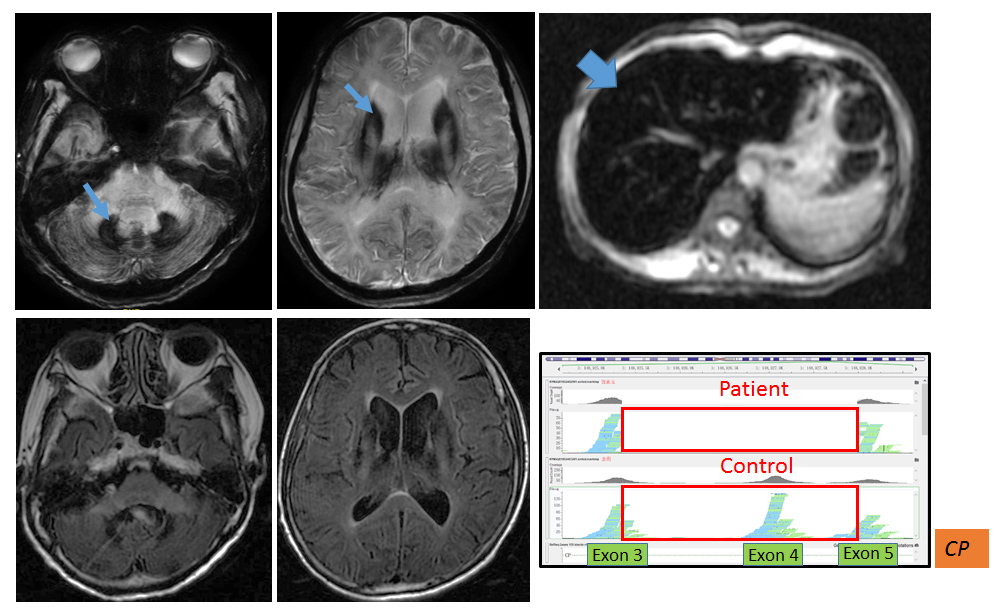Category: Neuroimaging (Non-PD)
Objective: We reported a 65-year-old woman presented with dysarthria, chorea, facial and neck dystonia.
Background: Aceruloplasminemia is an autosomal recessive disorder characterized by progressive neurodegeneration, which is caused by mutations of ceruloplasmin (CP) gene.
Method: Whole-exome sequencings (WES) were carried out in this patient. Family and personal medical history, clinical and neuroimaging characteristics were collected and analyzed discreetly.
Results: A 65-year-old woman presented with dysarthria, chorea, facial and neck dystonia for over 2 years. She had diabetes mellitus, blurred vision and anemia since her 30’s. She was born to non-consanguineous parents and there was no family history of neurological disorders. Neurological examination revealed mild cognitive decline, with a Mini-mental State Examination(MMSE)score of 25/30. Facial and limb dyskinesia were remarkable. Dysarthria was extremely distinct. Her muscle strength was basically normal, but her muscle tone and deep reflexes were both decreased. The sensory was unremarkable, and bilateral Babinski signs were negative. Extremely low serum ceruloplasmin (0.023 g/l, normal 0.2-0.6 g/l) combined with low iron concentration (10.7μg/dl, normal 50-174μg/dl), low transferrin concentration(1.56 g/l, normal 2-3.6 g/l), and high ferritin concentration (539 ng/ml, normal 14-307 ng/ml) was detected. Brain and liver magnetic resonance imaging showed diffuse iron deposition. Diagnosis of aceruloplasminemia is confirmed by identification of rare biallelic deletion of exon 4 in the ceruloplasmin (CP) gene(figure1). Iron chelation (desferrioxamine 40mg/kg/d) and fresh frozen plasma transfusion was started.
Conclusion: Aceruloplasminemia should be strongly suspected when patients presented with clinical triad of retinal degeneration, diabetes mellitus, and anemia. Diffuse iron deposition in Brain magnetic resonance was also imaging features. Genetic testing was the main diagnostic method.
To cite this abstract in AMA style:
X.Y Li, L. Wang, X.H Wan. MRI findings in a 65-year old female with movement disorder [abstract]. Mov Disord. 2020; 35 (suppl 1). https://www.mdsabstracts.org/abstract/mri-findings-in-a-65-year-old-female-with-movement-disorder/. Accessed February 22, 2026.« Back to MDS Virtual Congress 2020
MDS Abstracts - https://www.mdsabstracts.org/abstract/mri-findings-in-a-65-year-old-female-with-movement-disorder/

